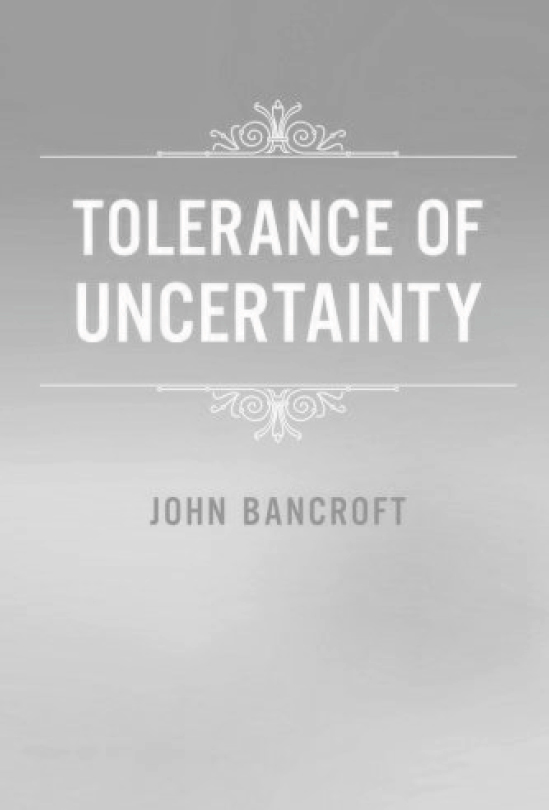
Professor John Bancroft is an internationally renowned scholar and researcher in the field of human sexuality. After a highly successful working lifetime in academic study, he has now published a book about what he makes of what he has done and learnt.
Tolerance of Uncertainty is a deeply personal book, and it is hard to categorise. At one level, it is a (longish) essay in self-reflection: what have I learnt about the scientific method and approach to life? In what sense am I a scientist? What does this say about the way I engage with truth and certainty? Professor Bancroft starts with Popper, moves swiftly to Plato and Socrates, and seeks to argue that you can divide thinkers and theorists into those who can tolerate uncertainty and those who cannot. He does his homework diligently to set out his understanding of how humans have approached the certainty of sex and gender. He particularly focuses on the world religious systems and their accounts of human sexuality, reasoning that their philosophy underpins their approach to science and the development of knowledge. He provides a whistle-stop tour of the tenets of the world's main religious systems with particular reference to their accounts of gender and sexuality.
He concludes that we need a ‘two-team’ approach to gender role and function in society, and we need to tolerate the uncertainty of the paradox of sameness and difference that makes us who we are. Our differences are significant and meaningful but they may matter less than our similarities. He also offers a very personal account of how he has understood the nature of the unknown in our human experience.
This book is an endearing mixture of expert evidence, general reviews on big topics in philosophy and personal reflections. Not all of it works; the general reviews are inevitably superficial, and I think the conclusions about gender role in the workplace will have radical feminists of both sexes wanting to have serious words with the good professor. I also noted a curious absence of discussion about faith, which to me seems to be essential for the pursuit of knowledge. Still, I would recommend this book – to psychiatrists who are interested in the wider context of our work.



eLetters
No eLetters have been published for this article.